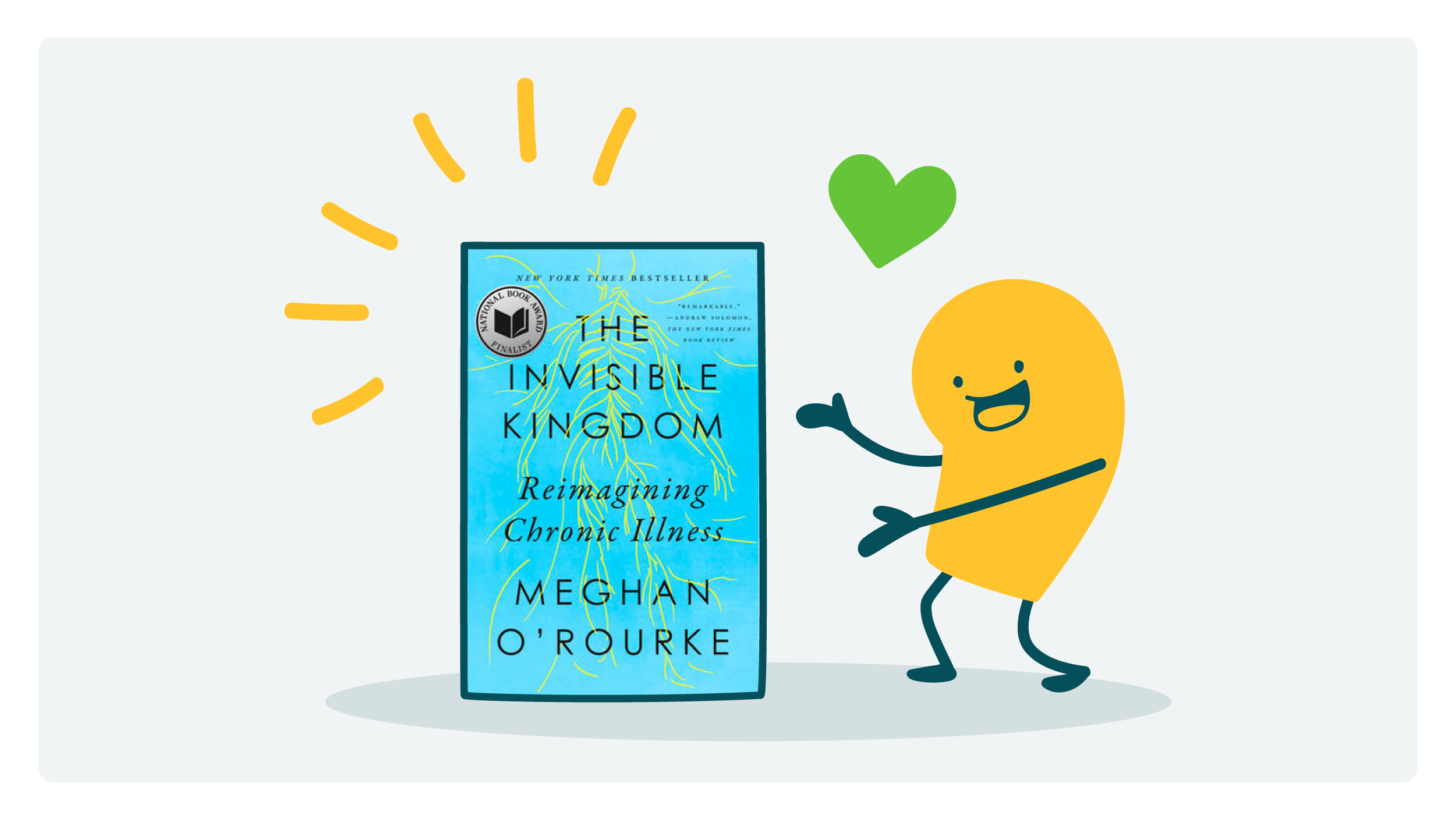
Today, we’re shining the spotlight on a book that illuminates what it’s like to live with a hard-to-diagnose disease: The Invisible Kingdom: Reimagining Chronic Illness by Meghan O’Rourke. Part memoir, part highly researched nonfiction, it’s an eye-opening read about the experiences of people on the margins of medicine: those with a so-called “invisible illness” not easily identified or treated.
For over a decade, O’Rourke dealt with intermittent but debilitating symptoms: brain fog, vertigo, fatigue, rashes, and what she calls “electric shocks” — stabbing sensations in her arms and legs. Her symptoms were wreaking havoc on her relationships, career, and sense of self. But despite the serious impact of her illness, O’Rourke struggled to find a doctor who would take her seriously. Again and again, her symptoms were dismissed or derided, and test results and appointments often left her with more questions than answers.
The Invisible Kingdom also explores how modern medicine is contending with chronic diseases and autoimmune disorders (spoiler alert: not all that well), both of which have a lot of overlap with hard-to-diagnose conditions. We ❤️ that the author draws attention to what’s working against those with invisible illness — among other barriers to proper care, she names social determinants of health, gender bias, harmful “problem patient” stereotypes, an inefficient health care system, lack of understanding of autoimmunity, and physician burnout.
While O’Rourke eventually received diagnoses and treatments that helped, she writes that she’s never fully free from her symptoms. Health and illness are often framed as mutually exclusive states — someone is either well or unwell. But O’Rourke explains that for her and many others, the options just aren’t so clear cut. Instead, they “live in a gray area between health and disease for years … between feeling well and being symptomatic.”
There are so many important health comm takeaways from this book that we couldn’t possibly include them all. So, dear readers, here are 3:
- Empathy is key. Of the countless doctors that O’Rourke saw, only a handful treated her with respect or took her symptoms seriously — especially after the first rounds of tests failed to identify the problem. Unsurprisingly, it’s the doctors who were willing to connect with and listen to O’Rourke that were finally able to offer some relief. Empathy, empathy, empathy!
- Illness is isolating. O’Rourke emphasized how lonely her illness made her feel: “One of the hardest things about being ill with a poorly understood disease is that most people find what you’re going through incomprehensible — if they even believe you are going through it.” As health communicators, we can acknowledge that isolation, as well as offer guidance on how to get social support and reminders that patients deserve doctors who take their concerns seriously.
- It’s okay (and critical!) to acknowledge what we don’t know. The Invisible Kingdom reminds us that there’s still plenty of uncertainty in medicine — particularly related to concepts like autoimmunity. And if there’s one thing we learned from the last few years, when it comes to health comm, it’s that acknowledging what we don’t know is always best.
The bottom line: Check out The Invisible Kingdom for the story of one woman’s experience with invisible illness — plus powerful health comm lessons about empathy, isolation, and uncertainty.
Browse recent posts